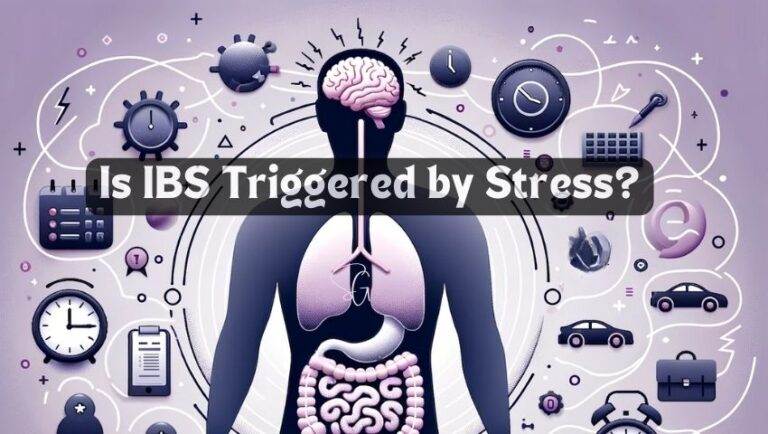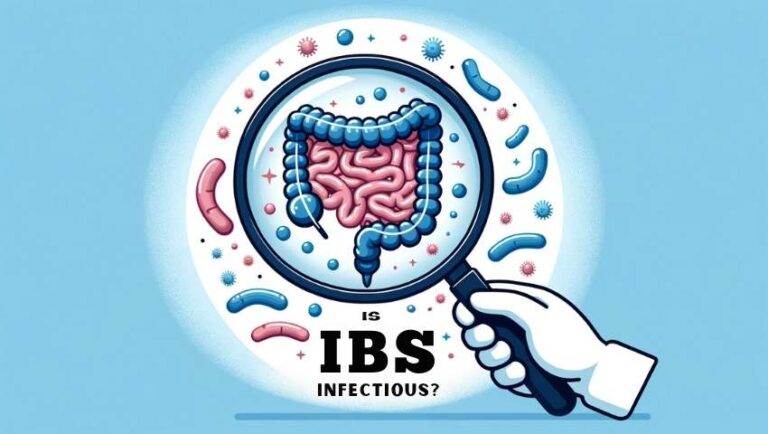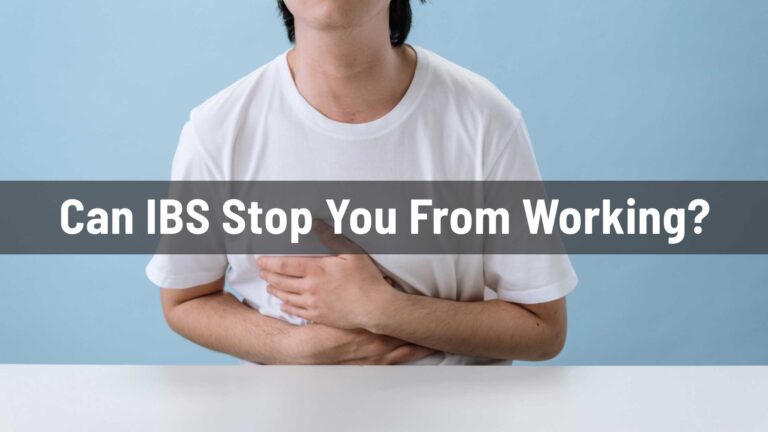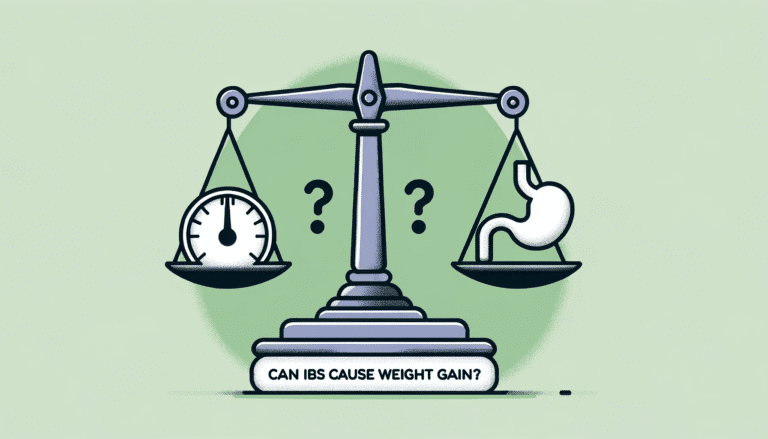Can IBS Develop at Any Age? – Untangling the Web of Digestive Health
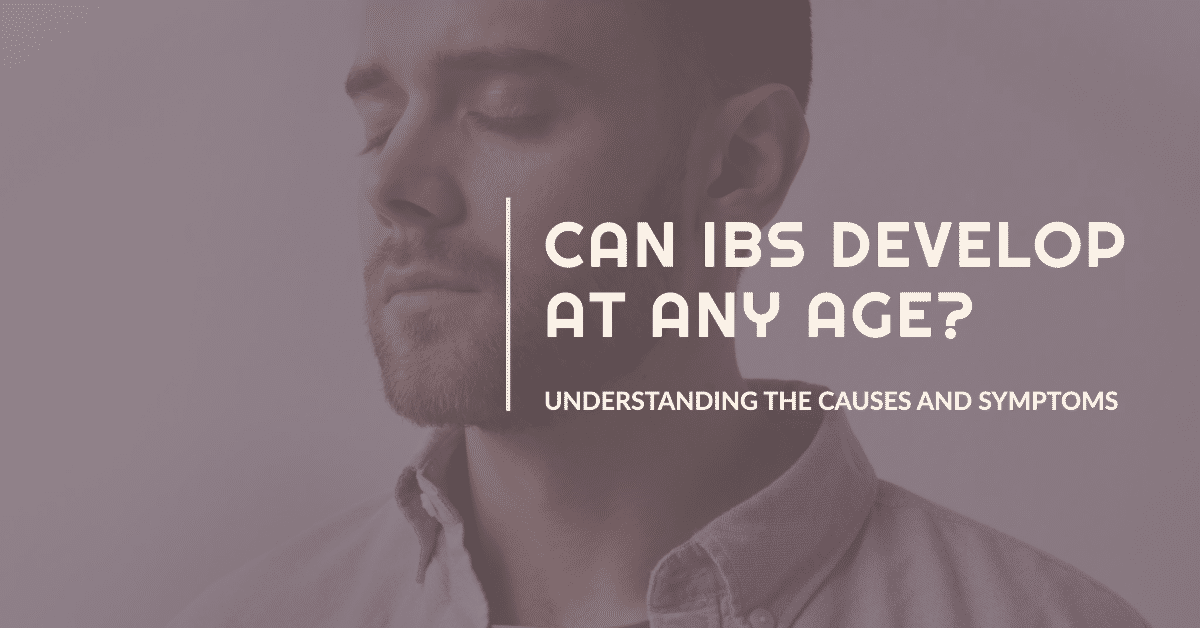
You may think Irritable Bowel Syndrome only affects teenagers and young adults. But can IBS develop at any age? – Yes it can, even if you’ve never had issues before.
Up to 20% of older adults develop IBS symptoms like abdominal pain, bloating, diarrhea or constipation [1].
If you feel like your digestive system is suddenly out of whack, you could be dealing with a new case of IBS.
IBS is no picnic at any age. But getting diagnosed later in life can leave you wondering – what gives? Why now?
The good news is, there are plenty of ways to manage IBS and improve your quality of life.
Let’s break down the symptoms, causes and treatments, so you can take control over your tummy troubles.
Why Does IBS Show Up Out of Nowhere?
We often associate digestive issues with young people. But the fact is, IBS can rear its ugly head after age 40 or even 60.
No one’s sure exactly why it strikes later for some folks. There are a few theories though:
- You’ve had low-grade symptoms for years – Minor digestive discomfort may get brushed off as normal. But when it ramps up, you realize it’s IBS.
- Your gut microbiome changed – Things like antibiotics, illness and diet impact your gut bacteria. Those changes may trigger IBS.
- Hormones play a role – Hormonal shifts from perimenopause, menopause or andropause could affect digestion.
- Stress and emotions changed – More responsibilities, grief or anxiety can exacerbate IBS.
The point is, IBS is complicated. A variety of factors may tip you over the edge into full-blown symptoms. But don’t panic – there are solutions.
What Exactly Are the Symptoms of IBS?
IBS looks different for everyone. But some common red flags include:
- Abdominal pain and discomfort
- Bloating and gassiness
- Alternating diarrhea and constipation
- Changes in bowel movement frequency
- Urgent bowel movements
- Cramps before or during bowel movements
- Excess mucus in stool
- Food sensitivities
Symptoms may come and go over weeks or months. They tend to flare up during times of stress. Some people deal with IBS discomfort daily.
If these sound familiar, make an appointment with your doctor. They’ll help diagnose IBS and rule out other conditions like celiac disease or inflammatory bowel disease.
Key Ways to Manage IBS
Living with IBS can be frustrating. But you’re not powerless against those rumbly guts! Work closely with your doctor on lifestyle changes and medications to find what helps you.
Here are some proven ways to ease symptoms:
- Adjust your diet – Limit gassy foods, dairy, gluten, alcohol. Try a low FODMAP diet.
- Take medications – Antispasmodics, laxatives, anti-diarrheals and certain antidepressants can provide relief.
- Reduce stress – Try counseling, meditation, yoga, exercise, etc. Stress makes IBS way worse.
- Get more fiber – Soluble fiber like psyllium husk can help normalize stools.
- Take probiotics – They help get your gut bacteria balanced again.
- Explore alternative therapies – Acupuncture, gut-directed hypnotherapy from Nerva IBS, and peppermint oil may calm symptoms for some people.
- Avoid trigger foods – Keep a food diary to identify problem ingredients. Common triggers are caffeine, fat and sugar alcohols.
Be patient finding what works for you. IBS treatment takes some trial and error. But taking control of your symptoms is absolutely possible, even if they developed later in life.
Let’s Recap – Can IBS Develop At Any Age?
Dealing with new digestive troubles can be stressful and confusing.
But knowledge is power when it comes to managing IBS – here are some key points to remember:
- IBS can arise after age 40, even if you’ve never had issues before. It’s not just a young person’s condition.
- Work closely with your doctor to pinpoint IBS and rule out other conditions.
- Common symptoms include abdominal pain, bloating, diarrhea and constipation. They tend to flare with stress.
- Treatment is multifaceted – adjust your diet, reduce stress, take medications/supplements, etc.
- Identify and avoid trigger foods that make your symptoms worse.
- Patience pays off. It may take time to find the right lifestyle changes and treatments to manage your IBS.
Even if IBS strikes out of the blue later in life, you’ve got this! Arm yourself with information and work with your doctor to tame those symptoms.
Don’t hesitate to explore different remedies until you discover your personal formula for success. Here’s to getting your gut back on track!
Also Read
FAQs About Developing Irritable Bowel Syndrome (IBS)
Can IBS develop suddenly?
Yes, IBS symptoms can seem to appear out of nowhere, even if you’ve never had stomach issues before.
Something often triggers the onset of IBS, like a bout of food poisoning, increased stress, hormonal changes or disruption to your gut microbiome. But it may come on so gradually you don’t realize it’s IBS right away.
Why did I get IBS later in life?
There are several theories why IBS arises after middle age: hormonal shifts during menopause or andropause, increased stress and responsibilities, side effects of medications, changes to gut bacteria from factors like illness and antibiotics, or developing food sensitivities.
What can be mistaken for IBS?
Other conditions like inflammatory bowel disease, celiac disease, bowel obstruction, colon cancer or thyroid issues can mimic IBS symptoms. That’s why it’s important to see a doctor for testing to rule out other possible causes.
How do you know if you have IBS?
If you have chronic abdominal pain/discomfort, diarrhea, constipation or both, plus bloating regularly, it may be IBS.
Symptoms that fluctuate, seem linked to stress, and started suddenly could also indicate IBS. But be sure to get properly diagnosed by a doctor.
What are the symptoms of mild IBS?
Milder IBS may involve subtle changes in bowel habits, mild stomach pain that comes and goes, occasional bloating or gassiness, or looser stools during times of stress.
You may not deal with severe diarrhea or debilitating pain. Symptoms impact quality of life less.
What are the worst foods for IBS?
Common IBS trigger foods include alcohol, coffee/tea, beans, gas-producing veggies, dairy, fatty or fried foods, garlic and onions, carbonated beverages, artificial sweeteners, and high-fructose fruits.
An elimination diet can help identify personal triggers in people with IBS.
Disclaimer: This content is based on my personal experience as an individual diagnosed with celiac disease and IBS (Irritable Bowel Syndrome) who follows a strict gluten-free diet. This does not constitute medical advice. Please consult a medical professional, nutritionist, or qualified dietitian for personalized, professional advice.


